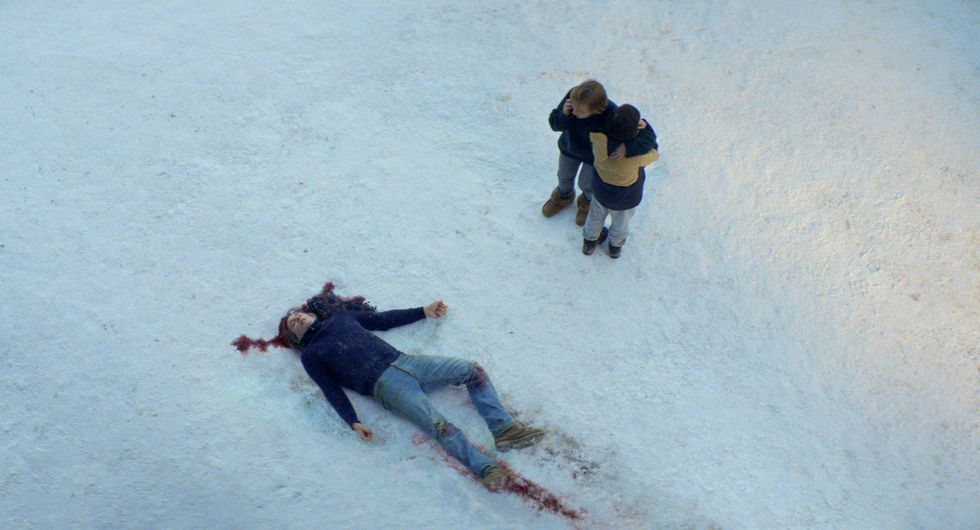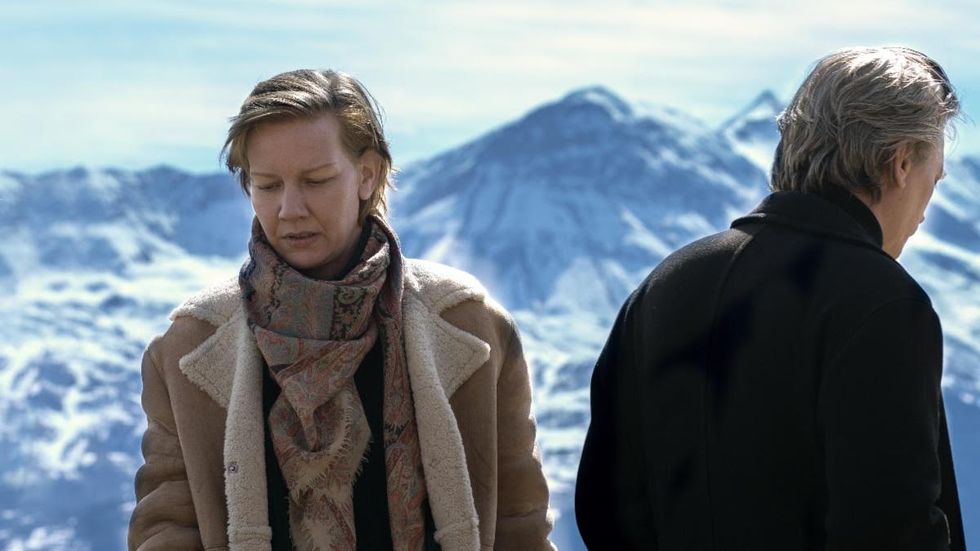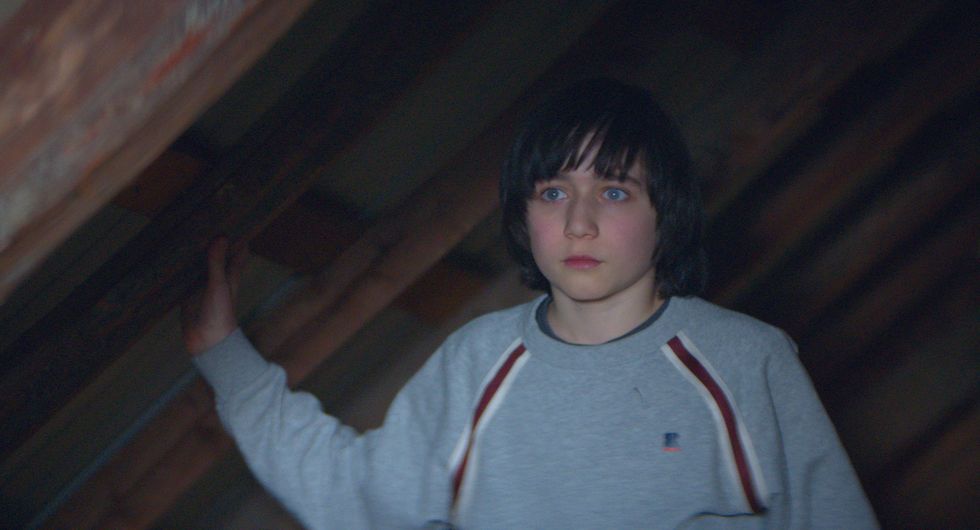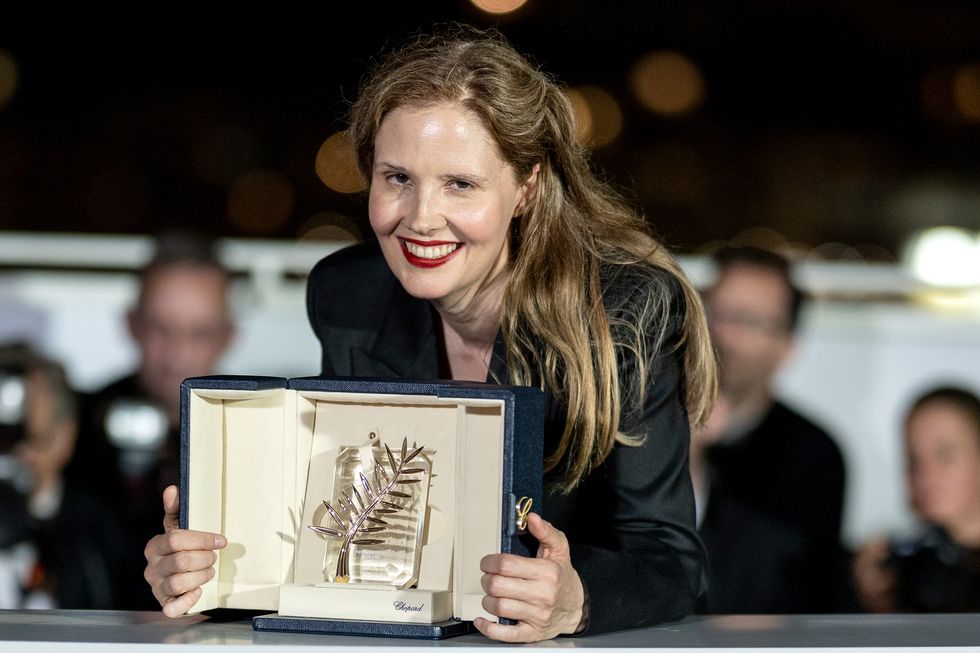Products You May Like
Spoilers ahead.
At first glance, you could say that Justine Triet—the incisive French writer-director of the sensational crime-drama Anatomy of a Fall—is chiefly interested in stories that follow complex and unknowable women. The main protagonists of her wide-ranging filmography thus far—from Age of Panic’s journalist Laetitia to the eponymous leads of Victoria and Sibyl, a lawyer and a therapist, respectively—suggest as much, as Triet’s women steer complicated personal and professional lives across comedies and psychodramas alike.
The smash-hit of this year’s 76th Cannes Film Festival, where it won the Palme d’Or, Anatomy of a Fall neatly fits into this observation, too. (Triet is only the third woman ever to claim the annual gathering’s grandest prize, after Jane Campion with The Piano in 1993 and Julia Ducournau with Titane in 2021.) With a confident, successful and sexually liberated writer as its central character (Sandra, played by Sandra Hüller), Triet’s latest navigates Sandra’s increasingly complicated existence as she gets tried by the French justice system for the possible killing of her husband (Samuel, played by Samuel Maleski), who dies at the start of the film under mysterious circumstances which could mean an accident, a suicide, or a murder.
So yes, Anatomy of a Fall—a whodunit, or rather, a “did she do it?”—is a welcome addition to Triet’s growing line of intricate women. But to Triet, who doesn’t necessarily think of herself as a filmmaker drawn to the most original or sensational topics, there is a more basic common denominator that connects her preoccupations as a storyteller. “I have mundane forms of interest,” Triet tells ELLE.com over a video interview. “Love or friendship. Friendship particularly is something that I’m interested in now,” she continues. “As I grow older, what matters most to me is [not only] the time spent in the making and thinking of the film, but also the time [spent] to exist in a moment of life with someone. Sometimes, I like to see an efficient little sketch or anecdotal thing on TV. But it isn’t what I want to create.”
In a way, these professed interests perfectly sum up Anatomy of a Fall’s underlying themes. In that regard, you don’t have to dig too deep to grasp that Triet’s tightly wound courtroom drama is in fact a brutally honest dissection of love on the one hand—the fading love between Sandra and Samuel, as well as the increasingly tricky one between Sandra’s young son, Daniel (Milo Machado Graner) and his mother, a suspect in the eyes of the law. Similarly, the deposits of friendship, that aforesaid need to stand still with someone, is in the film, too, through Sandra’s disarming bond with and trust in her kindly friend and attorney, Vincent (Swann Arlaud). Throughout Anatomy of a Fall, all these relationships and allegiances get tested in measured, escalating drips and no relationship feels safe, small or predictably orderly.
Triet always knew the starting point of her story would be the couple, or rather, the story of the couple told in a courtroom, with a host of stakeholders speaking on behalf of Sandra, denying her a narrative of her own. “She wants to get back her narrative and I used the courtroom drama to tell that story,” she explains. “Because everything is magnified and warped a little [in that environment]. Everything that she lived in real life is going through the point of view of the prosecutor. Everyone is there to tell a story, but not the reality, not the truth. So it’s a nightmare.”
To make that nightmare more believable, Triet and her co-writer Arthur Harari (Triet’s spouse in real life) meticulously researched French courtroom dynamics and jargon, trying to free themselves from the cliched Hollywood depictions of trials where people shout out phrases like “Objection your honor!” a lot. “We really made a mistake in the beginning and wrote things that are not possible in France,” she laughs. But then French writer and attorney Vincent Courcelle-Labrousse came to their rescue, helping them hone the legal details. “I spent a lot of time with him in courtroom in France,” recalls Triet. “In the end, we took some liberties on little things. But we didn’t want to do [common things] that we see in other movies.”
In that, Triet—a fan of the courtroom drama genre—didn’t draw from its tried and true formula. “We put everything on the side to create our movie. La Vérité, by Henri-Georges Clouzot, was very interesting to watch after, but [we watched it] after. And I think it’s different from our movie.” Triet also wanted to challenge the sterile and tidy depictions of on-screen courtrooms, paying specific cinematic attention to the busy and shifting points of view through which the audience would observe the happenings. “It was often the kid’s [point of view], Daniel’s,” she says. “And we were looking for imperfect, accident-y things [instead of] putting the camera somewhere to have a beautiful picture. ‘Unclean’ is a word I use a lot in French.”
Both through the courtroom scenes and beyond, it was always a key concern for Triet to preserve Sandra’s elusiveness, cranking up the reveals about her character gradually in order to maintain a sense of tension and mystery, while allowing Sandra moments of both strength and vulnerability. It was just as vital to keep Daniel’s shifting point of view at the center of the tale as a young boy starting to have some doubts about his mom’s innocence. “Sandra’s in a very weird situation. She has to be strong in that courtroom and she has to take care of her child, who wants to know everything,” Triet remarks. “So she tries to be very authentic and simple. [For Daniel], it’s the most difficult position that I think you can [be in], hearing what all these people say about [his parents].”
Elsewhere, film’s canine star Messi (this year’s Palm Dog winner at Cannes, trained by Laura Martin) lent the film an additional and useful point of view to drive the plot forward. “He was like a mascot in the movie,” Triet says affectionately. And language became an additional handy tool for Triet to escalate the story’s anxiety-inducing notes, with Sandra—a German woman married to a French man and living at his French hometown—having to stand up for herself in a tongue she isn’t particularly fluent at. “When my children were small, and I’m sure it happens in a lot of families, my partner and I would speak in English so that they wouldn’t understand what we were saying,” she says. “So this way to use language as a screen was always interesting to me. It’s fascinating to think about how a foreigner is placed in an environment where she has to defend herself in a language that isn’t hers.”
When the film’s centerpiece—its only flashback where we observe Samuel and Sandra in the midst of a stupendously written quarrel sequence—arrives, one that is used as evidence in court, the spoken language is English, as decided by the couple to be their neutral ground. “It was the most difficult scene to write,” Triet remembers. “I think we had sixty versions of that scene.” It took time to get it perfect, because Triet wasn’t sure at first how to strike a balance between disclosing enough information about the couple and making the argument interesting. “I was getting bored of [them],” she recalls. But then the co-writers cracked it when they decided to make the quarrel about a universal concern for all couples: the question of time. “Rich people can buy time. Hire a nanny or something. [But these people can’t.] Many things came, like sexual issues, after we based the argument on time. That she’s [supposedly] committed a heist on his time and on his creativity. And yes, it’s the only flashback [scene in the film]. If we didn’t have that, I think it could have been too theoretical.”
While the above mentioned sequence is the film’s—and one of the year’s—most memorable cinematic experiences, Triet had been afraid of it from the start. “I have to admit something,” she says, leaning closer. “I [feared] that people would not be with her at that moment. I’m with her, of course. So I gave her more [dialogue lines] and more weapons than him.” But at the end, the perfection of the scene was equally thanks to Hüller’s exacting performance. “She understood how to play it, how to be really tough. She’s a great actress, she knew exactly how to say, “You are not a victim.” I had six takes of just that part and I chose the first one,” Triet says, remembering that Hüller’s escalating performance. “After that, [Sandra’s] skin was so wet. She was another person physically. So I kept the first one and I think [she] was perfect.”
While Triet is no real fan of ambiguity in real life, it’s what she would like to propel her work with in cinema, as she did with Anatomy of a Fall. “I think the gray zone can be a dangerous space in real life, especially in specific cases and discourses about sexual abuse or else—so I’m cautious about outwardly supporting it. In my work, however, I am always interested in working towards complexities and overlapping subjectivities. Precisely because I’m not a judge. Because it isn’t my job to clean up a moral situation. I don’t think I [can] make an edifying film. And so finding spaces of nuance is what my cinema is about.”
Anatomy of a Fall is now playing in theaters in New York and Los Angeles.
Tomris Laffly is a freelance film writer and critic based in New York. A member of the New York Film Critics Circle (NYFCC), she regularly contributes to Variety and RogerEbert.com, with bylines in Time Out New York, Filmmaker Magazine, The Playlist and Vulture, among other outlets. She has a special interest in the awards season, costume design and women in film, covers various film festivals throughout the year including New York Film Festival, Sundance and Telluride and tweets from @TomiLaffly.




